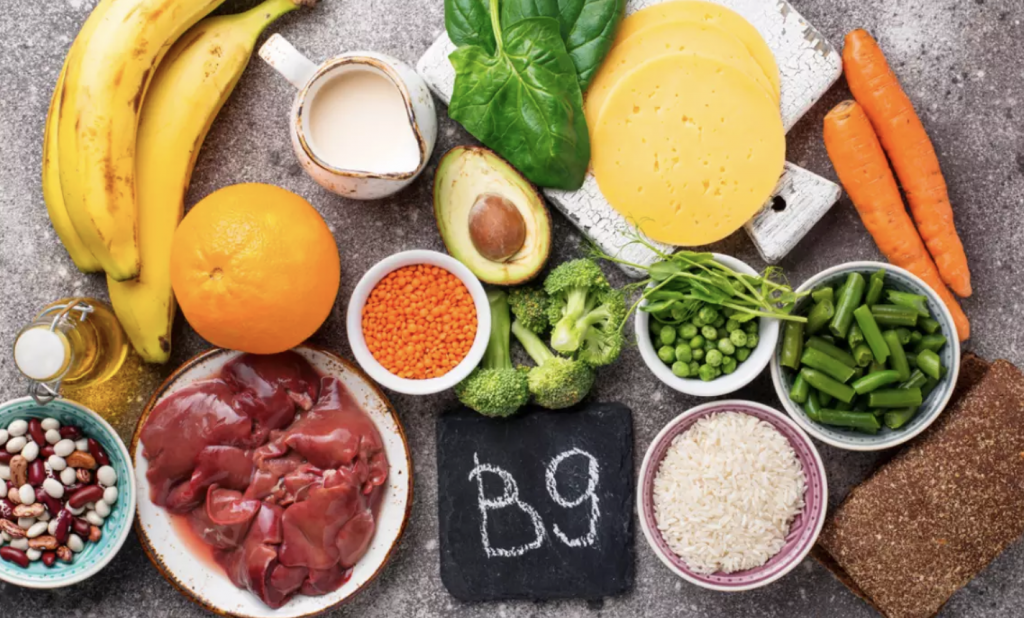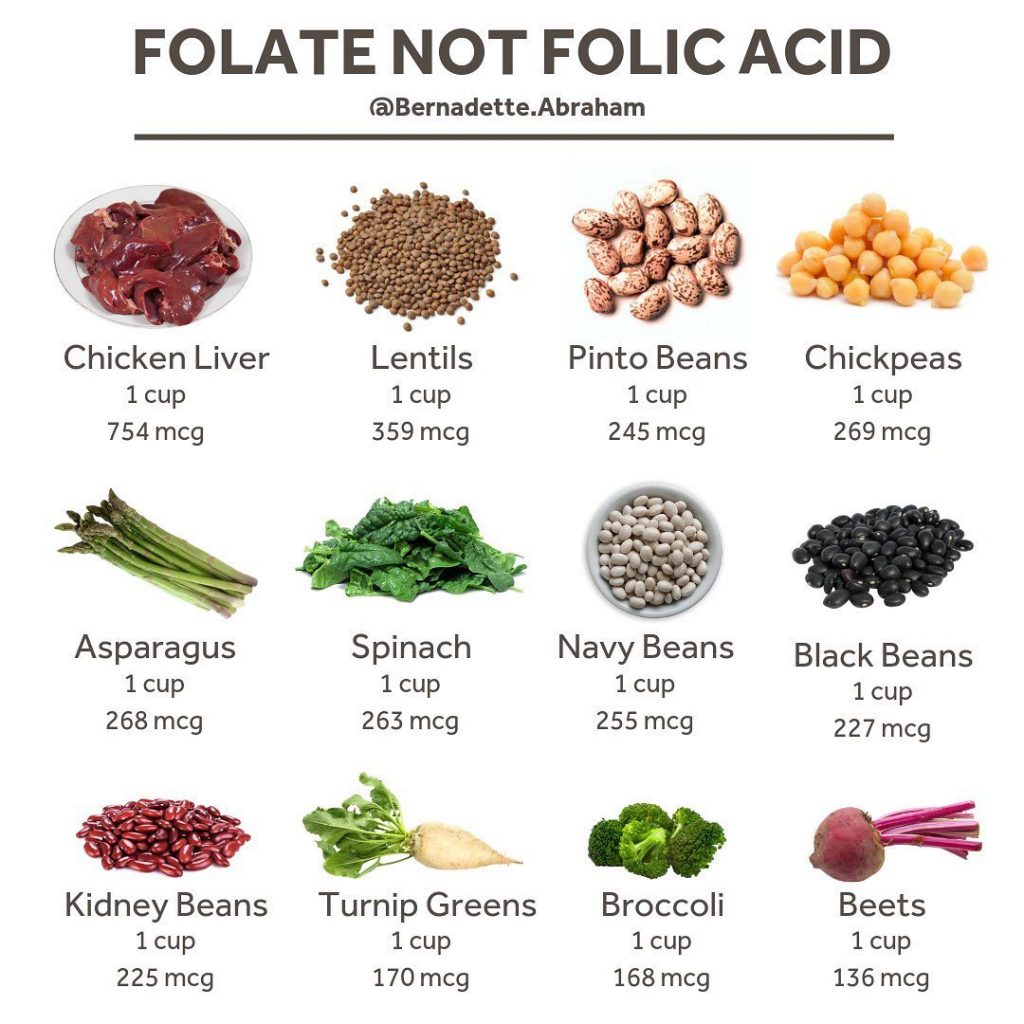
“Folate” & “folic acid” are often used interchangeably, but they’re not at all the same and here’s why you should care!
There are two main forms of vitamin B9: folate (the natural form) and folic acid (the synthetic form used in many supplements and fortified/enriched foods).
While their chemical structure differ slightly, the main difference lies in the body’s ability to process them.
Unlike natural folate which is easily metabolized in the small intestine, synthetic folic acid is metabolized by the DHFR enzyme in the liver which is rather low, leaving excess folic acid to be absorbed directly into the bloodstream.
High amounts of unmetabolized folic acid in the blood is associated with:
⚠️ Increased colon and prostate cancer risk
⚠️ Reduced immune function
⚠️ Increased risk of gestational diabetes up to mid-pregnancy
Folic acid supplementation should also be avoided due to poor conversion ability in those with MTHFR genetic polymorphisms (typically called SNPs) leading to higher levels of unmetabolized folic acid and lower levels of active folate in the blood.
Although MTHFR is common, it is “nutrient remedial”–meaning unlikely to be problematic in the context of a folate-rich diet.
While folate deficiency is rare, the most common sign is megaloblastic anemia where your red blood cells become too large, immature and low in number.
👉🏻An MCV marker on a CBC greater than 90 fL can indicate a need for more folate, however it may also be caused by a B12 deficiency which should be ruled out.
The best food sources of folate are pictured below with chicken liver ranking highest.

If you supplement, be sure to check your multivitamins to avoid products using “folic acid” and instead seek out:
💊 Folate
💊 Metafolin
💊 Quatrefolic
💊 Levomefolic acid
💊 L-methylfolate
💊 L-5-MTHF
💊 5-MTHF
📍The RDA for food-based folate for men and women aged 19+ is 400 mcg, with 500 mcg recommended during lactation and 600 mcg for pregnancy.
Check your labels!!
And remember, we do Better when we know Better.
Co-written with Ali Le Vere

Leave a Reply